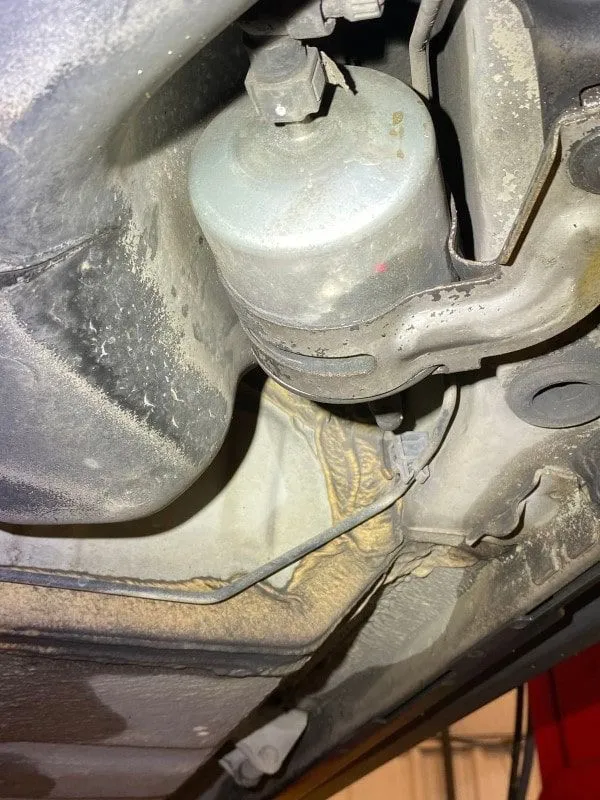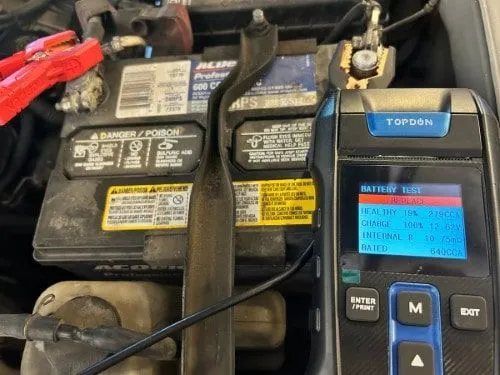Signs Your Fuel Filter Needs Replacement
Your car’s fuel filter plays a key role in keeping your engine running smoothly by filtering out dirt and impurities from the fuel before it reaches the engine. Over time, the filter can get clogged, impacting your vehicle’s performance. Knowing when to replace your fuel filter can prevent major issues. Here are the main signs to watch for and why it’s important to replace the filter on time.
1. Engine Performance Issues
Decreased Power: A clogged fuel filter restricts fuel flow to the engine, causing reduced power, especially during acceleration. This can result in sluggish performance or difficulty reaching higher speeds.
Stalling and Hesitation: If your engine hesitates or stalls when accelerating, it may indicate inadequate fuel flow due to a dirty or clogged filter, noticeable at low speeds or during idling.
2. Difficulty Starting the Engine
Hard Starting: A clogged fuel filter can make starting the engine more difficult, causing prolonged cranking or requiring multiple attempts to start the car.
No Start: In severe cases, a completely clogged filter can prevent the engine from starting altogether, necessitating immediate attention from a professional.
3. Unusual Engine Noises
Sputtering or Misfiring: Insufficient fuel flow through a clogged filter can lead to intermittent sputtering or misfiring of the engine.
Engine Knocking: Restricted fuel supply may cause the engine to run lean, producing knocking or pinging sounds, indicating an urgent need to replace the fuel filter.
4. Poor Fuel Efficiency
Decreased MPG: A dirty fuel filter forces the engine to work harder, reducing fuel efficiency. Sudden drops in miles per gallon (MPG) may signal a clogged filter affecting fuel flow.
Increased Fuel Consumption: Compensatory fuel usage due to restricted flow can lead to higher fuel consumption, noticeable over time.
5. Check Engine Light
Warning Indicator: A clogged fuel filter can trigger the check engine light due to reduced fuel flow, prompting diagnostics to identify specific issues related to the fuel system.
Diagnostic Codes: Diagnostic scans can pinpoint fuel system errors indicated by the check engine light, aiding in identifying the need for fuel filter replacement.
6. Regular Maintenance History
Scheduled Replacement: Manufacturers recommend replacing the fuel filter every 20,000 to 40,000 miles to maintain optimal performance. Following your vehicle’s maintenance schedule helps prevent issues.
Preventive Care: Even without noticeable symptoms, timely replacement ensures continued engine health and prevents potential future problems associated with a clogged filter.
Why Timely Replacement is Essential
Engine Protection: Regularly replacing the fuel filter safeguards engine components like fuel injectors from contaminants, maintaining performance and durability.
Prevent Costly Repairs: Ignoring a clogged filter can lead to costly repairs such as fuel pump failure or damaged injectors, underscoring the importance of timely replacement.
Enhanced Performance: A clean fuel filter provides consistent fuel delivery, optimizing engine performance and fuel efficiency.
Knowing the signs that your fuel filter needs replacement can help you address issues early, keeping your car reliable and efficient. If you notice any symptoms, consult an auto repair shop in San Antonio for an inspection and replacement. At Eurasian Auto Repair, our certified technicians provide expert diagnosis and replacement services to keep your vehicle running smoothly. Schedule an appointment today to maintain your car’s performance and protect your investment.









